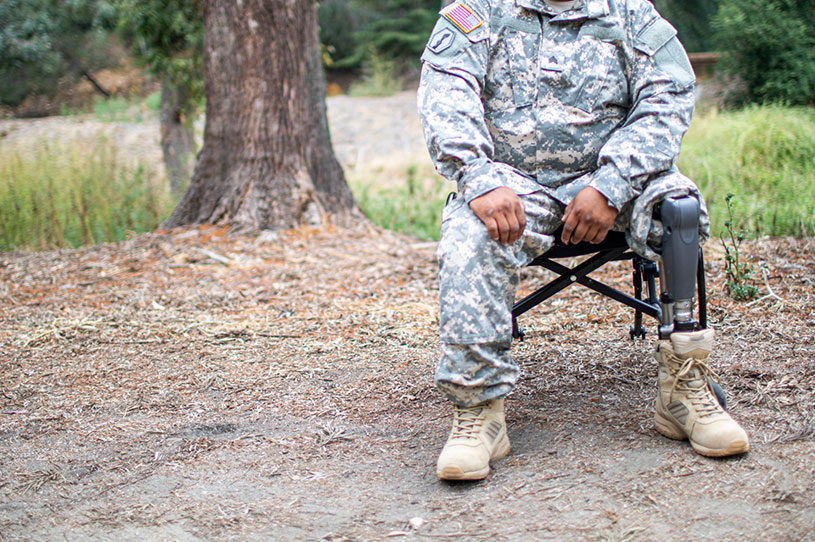When contemplating of veterans, it is common for us to envision valiant individuals, both male and female, who have demonstrated honor and bravery in their service to our nation. However, underlying their provision of assistance is a narrative encompassing distinct health obstacles encountered by numerous veterans. This article aims to elucidate the challenges encountered by veterans in a manner that is accessible and comprehensible. This will facilitate comprehension of the health issues people encounter. Military veterans’ physical and mental health must be examined. We must provide them with care and help due to their dedication to our safety. Let us examine military personnel’s physical and mental health issues in further detail. We will also examine healthcare access issues. Upon concluding this composition, readers will acquire an enhanced comprehension of the intricate realm about the well-being of troops, along with a more refined perception of the appropriate measures to support those who have dutifully served our nation.
Table of Contents
Physical Health Challenges
Veterans often face unique physical health challenges due to their military service. These challenges can vary from person to person, but some common issues include:
Injuries Sustained During Service
- A considerable number of military veterans may have had physical injuries during their service. The injuries encompass a spectrum, ranging from small sprains to more severe wounds.
- Combat and training can cause hearing loss, TBI, and musculoskeletal issues.
- Certain individuals who have served in the military may have enduring marks, encompassing both tangible and psychological manifestations, as a result of their past encounters.
Chronic Pain Conditions
- Slowly worsening chronic ailments include arthritis, back discomfort, and joint issues.
- Some service injuries cause long-term suffering.
- Veterans with chronic pain can suffer physically and mentally.
Access to Healthcare
- For military officer, access to healthcare can sometimes be a complex process. While the military Affairs (VA) system provides healthcare services, there can be waiting times and bureaucracy involved.
- Military officers often need to enroll in the VA system to access its benefits, which can be a daunting task.
- In some cases, veterans may opt for healthcare outside the VA system, but this can come with financial concerns.
It’s important to understand that veterans may carry the physical burdens of their service long after their time in the military has ended. These physical health challenges can impact their daily lives and overall well-being.
In the next section, we’ll delve into the equally important topic of mental health challenges faced by veterans, shedding light on the issues they encounter and the support available to them.

Mental Health Challenges
In addition to physical health challenges, veterans often confront mental health issues that can be just as demanding. These challenges can have a significant impact on their well-being and quality of life.
Post-Traumatic Stress Disorder (PTSD)
- Many veterans experience PTSD, a condition that can develop after exposure to traumatic events.
- PTSD can lead to flashbacks, nightmares, and severe anxiety, making it difficult for veterans to lead a peaceful life.
- It’s essential to recognize that PTSD is a natural response to intense stress and is treatable with the right support.
Depression and Anxiety
- Many causes can cause melancholy and anxiety in veterans, including the adjustment to civilian life.
- Sadness, despair, and anxiousness might influence their relationships and daily life.
- Treatment for these mental health disorders is essential to rehabilitation.
Access to Mental Health Care
- Access to mental health care can be a hurdle for veterans, similar to physical healthcare.
- Stigma around mental health issues can sometimes prevent veterans from seeking the help they need.
- Many organizations and support networks are available to provide mental health assistance to veterans.
The Importance of Support
- Social support from family, friends, and fellow veterans plays a vital role in helping veterans cope with mental health challenges.
- Encouraging open conversations about mental health can reduce stigma and make it easier for veterans to seek assistance.
It’s essential to remember that mental health is as crucial as physical health, and veterans deserve our understanding and support. By acknowledging these mental health challenges and offering assistance when needed, we can help our veterans lead healthier and happier lives.
Veterans Health Care Issues
Veterans have unique healthcare needs, and while there are healthcare systems in place to support them, there can be challenges they face in accessing and navigating these services.
Access to Healthcare
- For veterans, access to healthcare can sometimes be a complex process. While the Veterans Affairs (VA) system provides healthcare services, there can be waiting times and bureaucracy involved.
- Veterans often need to enroll in the VA system to access its benefits, which can be a daunting task.
- In some cases, veterans may opt for healthcare outside the VA system, but this can come with financial concerns.
Navigating the VA Healthcare System
- Understanding the VA healthcare system can be challenging. It has its language, processes, and eligibility criteria.
- Veterans may struggle to find the right services within the VA system or to connect with the appropriate healthcare providers.
- Some veterans may not be aware of the full range of benefits and services offered by the VA.
Healthcare for Mental Health Issues
- Mental health care is a significant concern for veterans, and accessing mental health services can be especially critical.
- Veterans with mental health conditions like PTSD or depression may not always know where to turn for help.
- The VA does provide mental health services, but the stigma surrounding mental health issues can deter some veterans from seeking support.
Support for Veterans Health Care Issues
- Veterans’ service organizations, community groups, and non-profit organizations offer valuable support to veterans navigating healthcare challenges.
- These support networks can help veterans understand their rights, access benefits, and connect with healthcare providers.
- It’s important for veterans to know that they are not alone, and there are resources available to assist them.
Navigating the healthcare system can be a daunting task for veterans, but with the right information and support, they can access the healthcare they need. It’s crucial for veterans to be aware of their options and for the community to provide support to those who have served our nation.
Coping Strategies and Support
Veterans facing health challenges, whether physical or mental, can benefit from various coping strategies and support systems. These strategies can make a significant difference in their overall well-being.
Self-Care Practices
- Veterans can adopt self-care practices to manage their health issues. This includes maintaining a healthy diet, staying physically active, and getting enough rest.
- Engaging in activities they enjoy, such as hobbies or spending time with loved ones, can improve their mental and emotional well-being.
- Managing stress through relaxation techniques like deep breathing, meditation, or yoga can be beneficial.
Seeking Support from Peers and Family
- Veterans often find solace in connecting with fellow veterans who have experienced similar challenges. Sharing experiences and advice can provide a sense of camaraderie and understanding.
- Family support is invaluable. Loved ones can provide emotional support, encouragement, and assistance in managing healthcare needs.
- Open and honest communication with friends and family can strengthen these support networks.
Veterans Organizations and Resources
- There are numerous veterans organizations and resources available to provide support.
- These organizations often offer assistance with navigating the VA system, accessing benefits, and connecting with healthcare providers.
- They can also provide information on mental health services, financial assistance, and housing options.
Encouraging Help-Seeking
- It is imperative to promote and facilitate the inclination of veterans to seek assistance when necessary.
- Seeking support for both physical and mental health concerns is indicative of resilience and fortitude, rather than a manifestation of vulnerability.
- It is very important to talk about and get rid of the social shame that surrounds mental health. It is important for veterans to know that they are not alone in their problems and that they can get help from a wide range of places.
Community Involvement
- Involvement in the community can provide a sense of purpose and belonging.
- Veterans can engage in volunteer work, join support groups, or participate in community events to stay connected and active.
Professional Help
- Accessing professional assistance from healthcare practitioners, therapists, or counsellors is an essential aspect of care for numerous veterans.
- It is imperative for veterans to promptly seek medical or mental health care without hesitation when the need arises. The use of timely intervention has the potential to yield improved outcomes.
By implementing these coping strategies and tapping into the support systems available, veterans can enhance their overall quality of life. It’s essential to remember that seeking help and support is a sign of resilience, and veterans should be encouraged to take these steps toward better health and well-being.
Conclusion
As our veterans’ health dialogue concludes, we should reflect on what we’ve learned and why it matters.Veterans served our country bravely. Their service has presented particular problems that may damage their health. We’ve examined veterans’ physical and mental health difficulties and healthcare issues.Honouring soldiers and providing them with care and support requires more than just learning about their health. We must help our veterans after they sacrificed for our freedoms.
We also discussed coping mechanisms and support networks that can improve veterans’ lives. Self-care, peer support, and veterans’ organisations can assist veterans manage their health. Seeking aid when required shows strength, not weakness. Veterans should seek expert help for physical and mental health difficulties.It is imperative for the community to actively reduce the stigma surrounding mental health and establish a supportive environment that facilitates open communication for veterans to express their challenges.
By fostering awareness, providing support, and cultivating understanding, it is possible to enhance the quality of life for our esteemed veterans. It is imperative to express our appreciation for the service rendered by veterans through both verbal and practical gestures.










2 Responses
Howdy! Do you know if they make any plugins to help
with SEO? I’m trying to get my site to rank for some targeted keywords but
I’m not seeing very good gains. If you know of any please share.
Kudos! You can read similar article here: Eco blankets
sugar defender ingredients As someone who’s always bewared regarding my blood sugar,
locating Sugar Protector has been a relief. I really feel a lot more in control, and my current check-ups have shown favorable improvements.
Knowing I have a reliable supplement to sustain my routine provides me assurance.
I’m so happy for Sugar Defender’s effect on my health and wellness!